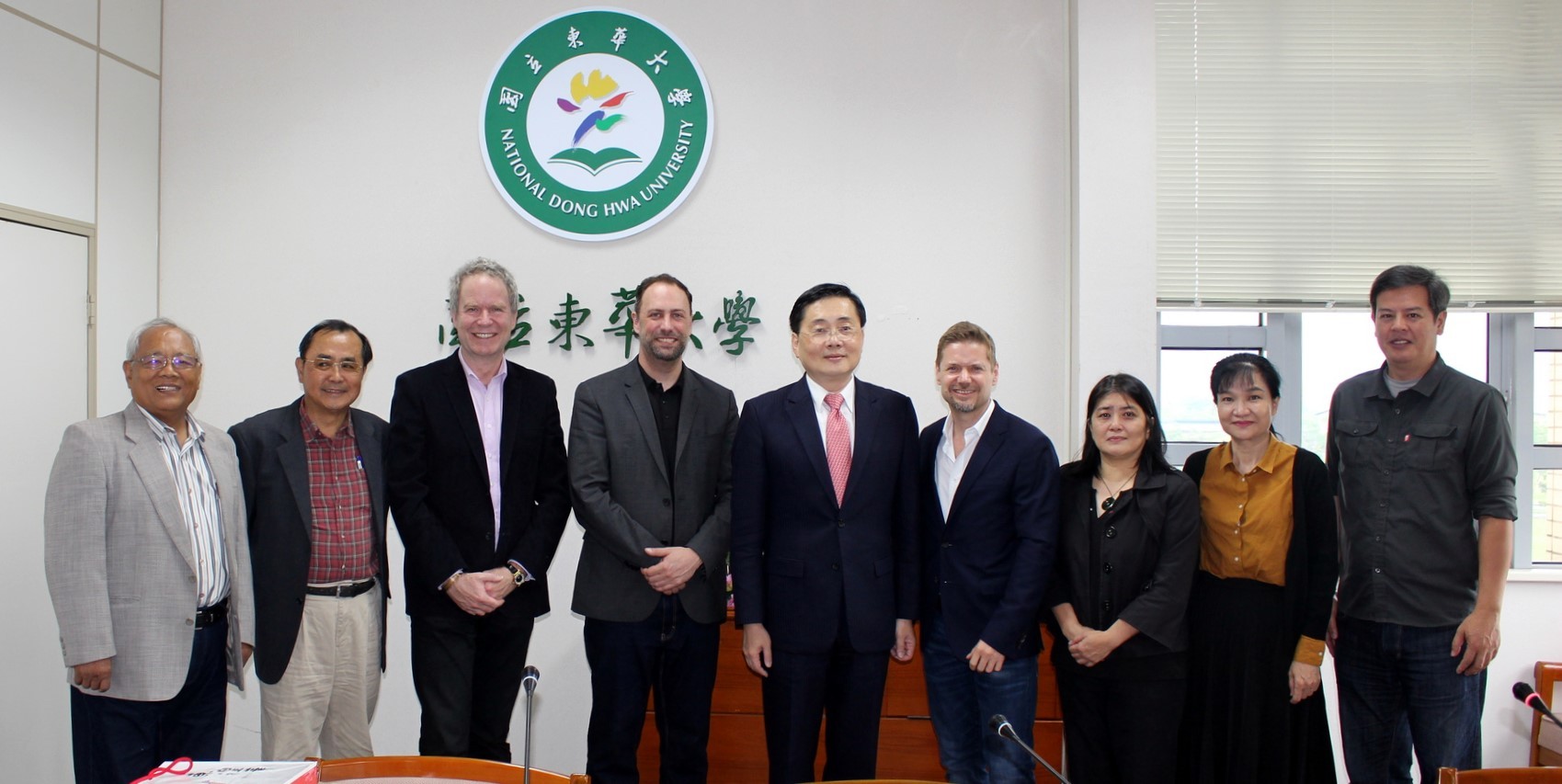
A courtesy call on the NDHU President Han-Chieh Chao by the Indigenous Transitional Justice Committee, the NCTR and the CTOT. From left to right: Masegeseg Z. Gadu(Subcommitte convener on languages of the Indigenous Transitional Justice Committee), Pasuya 'e Poiconʉ, Michael McCulloch(CTOT Director of General Relations), Ry Moran, Han-Chieh Chao, Jordan Reeves, Bavaragh Dagalomai(Subcommitte convener on reconciliation of the Indigenous Transitional Justice Committee), Wusai Lafin(Subcommitte convener on history of the Indigenous Transitional Justice Committee), and Sifo Lakaw(CIIA consultant)
The Director of Canada's National Centre for Truth and Reconciliation(NCTR), Ry Moran, was invited by the Canadian Trade Office in Taipei(CTOT)to visit Taiwan from March 24-27 to share his experience in promoting indigenous justice and reconciliation in Canada. During his visit, Moran paid a courtesy call at the Ministry of Foreign Affairs and the Council of Indigenous Peoples and joined the Public Lecture Series: Truth and Reconciliation in Canada and Taiwan, a series of events at National Dong Hwa University(NDHU)in Hualien on March 25 and 26 organized by the NDHU Center for International Indigenous Affairs(CIIA)and the Taiwan Presidential Office Indigenous Historical Justice and Transitional Justice Committee("the Indigenous Transitional Justice Committee"), featuring film screening and discussion, topical lectures, and indigenous tribal tours so as to encourage more in-depth conversation and room for future cooperation between Taiwan and Canada.
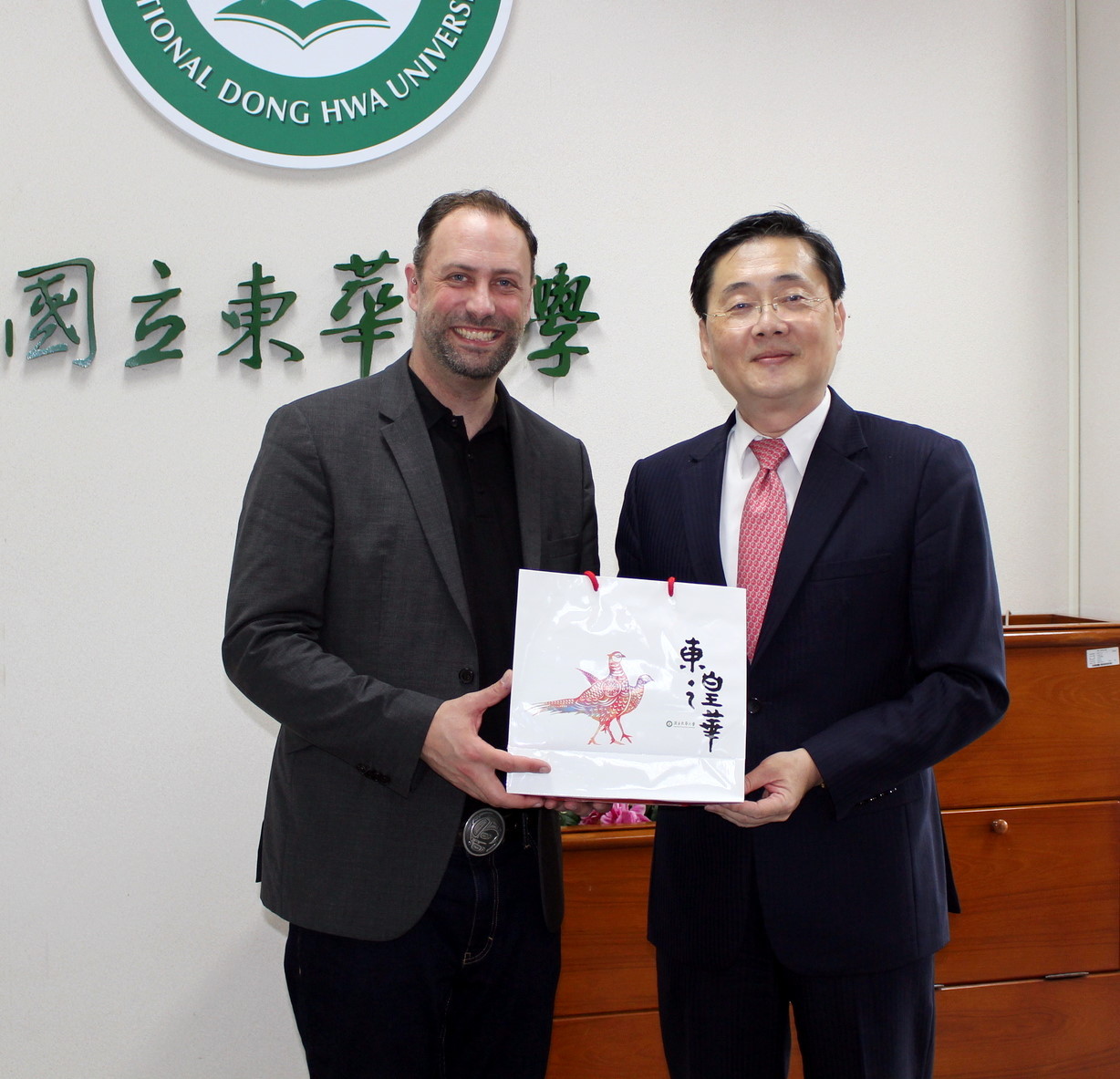
NDHU President Han-Chieh Chao presented souvenir to Director of NCTR, Ry Moran
In his talk "From Truth to Reconciliation: Healing Canada," Moran shared how the Canadian government faced the challenges and difficulties when dealing with indigenous historical justice and transitional justice issues. He began the talk by explaining his own ethnic identity and its meaning and then turned to the important starting point of Canada's indigenous justice, the establishment of the Royal Commission on Aboriginal Peoples(RCAP)in 1991 and its documentation and investigation into the colonial traumatic experience of the First Nations peoples. In 2008, the Truth and Reconciliation Commission(TRC)of Canada was established. As the TRC's first stage of work is now complete, the NCTR, officially opening in 2015, stands in and continues to play the role of constructing historical archives, promoting social communication and reconciliation, and healing from historical trauma.
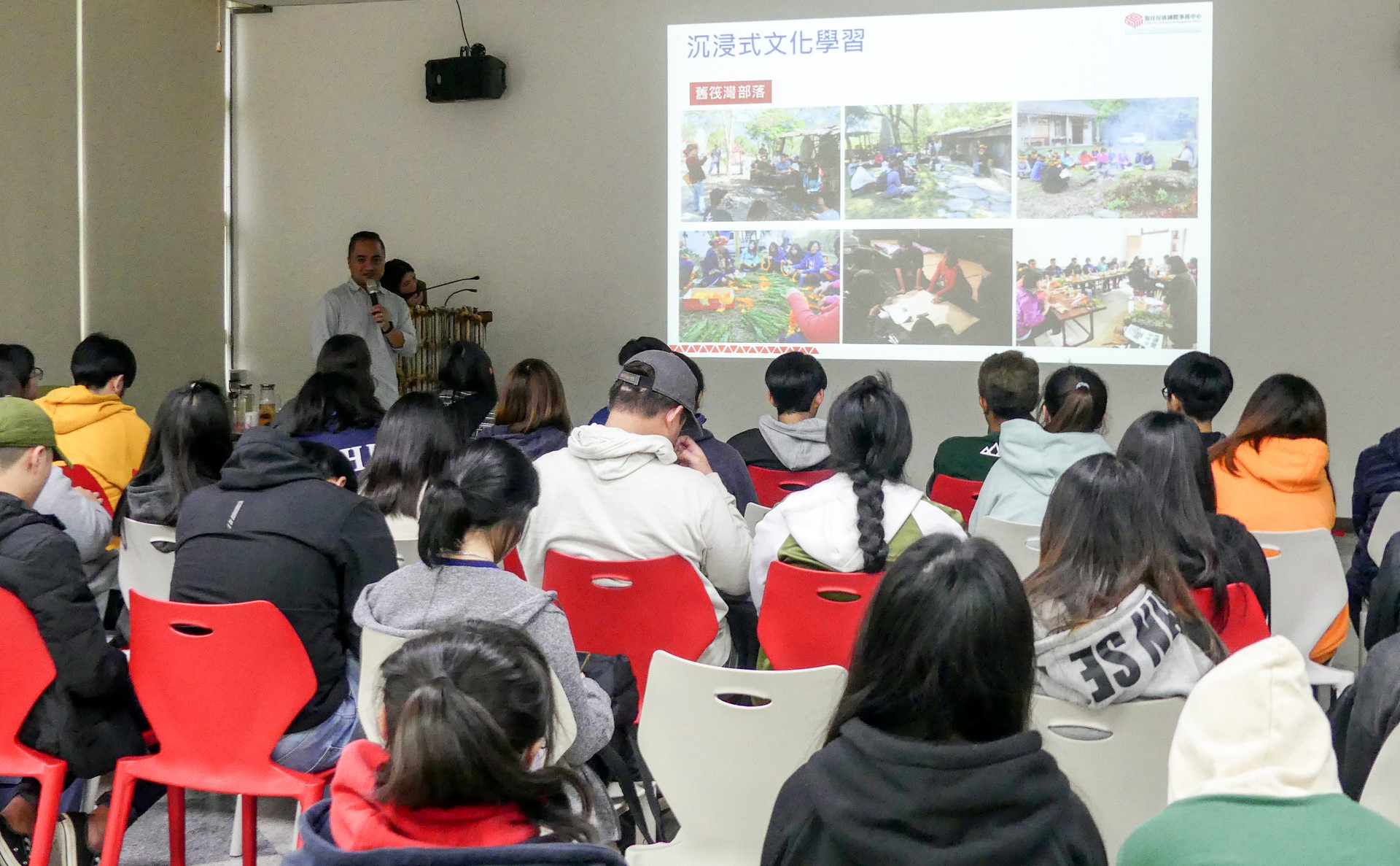
The "An Evaluation Study of the Pilot Course on Understanding Taiwan's Indigenous Language and Culture" project team discussed how to practice ethnic mainstreaming and indigenous transitional justice in basic education
The series also included a screening of the documentary, No Turning Back(1996)by the Vancouver filmmaker Gregory Coyes and a post-screening discussion by Professor Yi-fong Chen(陳毅峰)of the NDHU Department of Indigenous Affairs and Development. Professor Chen responded to the documentary with his involvement in the tripartite negotiations of Truku People v. Asia Cement Corporation in 2018, a case which drew a lot of nationwide attention. Through the documentary and Professor Chen's first-hand experience, the participants could not only understand the transitional justice issues and situation of indigenous peoples in Canada but also reflect on related cases in Taiwan. Moreover, Kui Ramulane(頼啟源), the executive director of the commissioned project by the Ministry of Education, "An Evaluation Study of the Pilot Course on Understanding Taiwan's Indigenous Language and Culture," also shared the current progress of the Indigenous Transitional Justice Committee and the promotion of ethnic mainstreaming in Taiwan's mainstream education with integrated curriculum guidelines to provide the basic social communication that enables transitional justice.
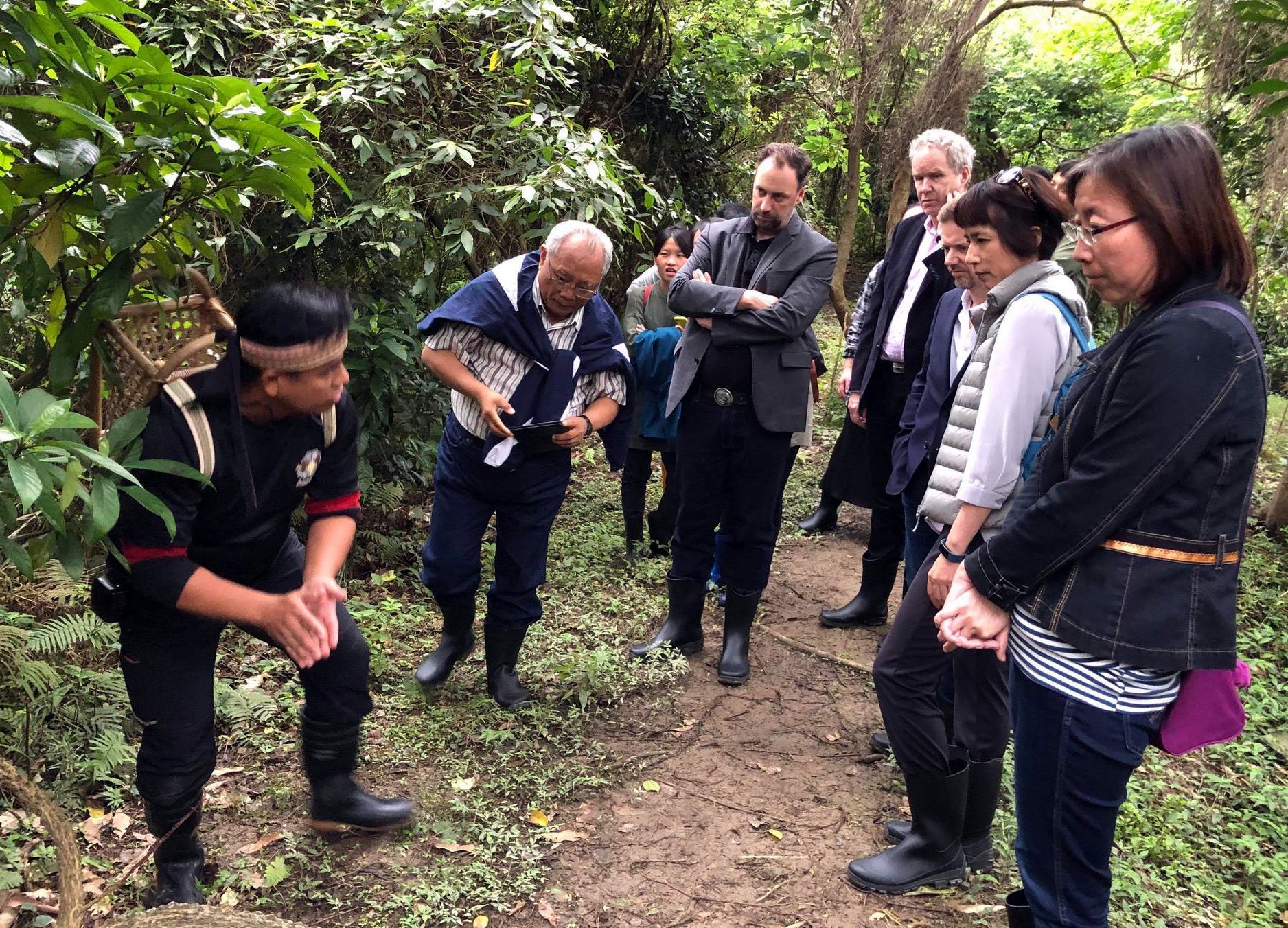
Tiang Ma of Culiu explained the traditional Bunun knowledge about mountains and forests
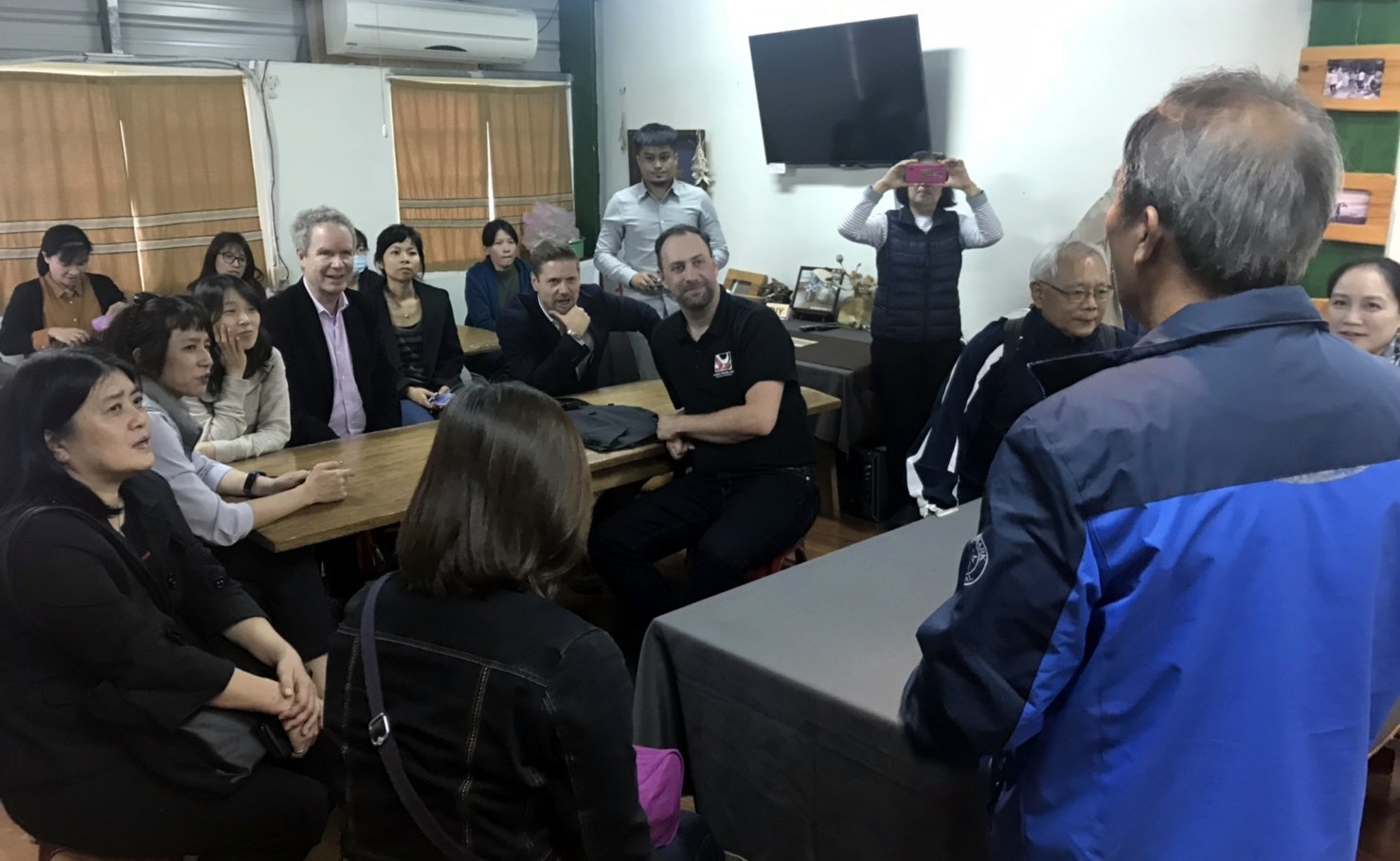
Tsung-Hsiu Hsieh(Buya.Batu), member of the Indigenous Transitional Justice Committee, introduced Kavalan culture and language revitalization in Lalaban Banana Weaving Workshop
In addition, the CIIA specially arranged for the guests from Canada and the members of the Indigenous Transitional Justice Committee indigenous tribal tours to the coastal area in Hualien. They first visited Lalaban Banana Weaving Workshop at Kavalan-Paterongan tribe. The workshop used the pictures of Kavalan bridal wedding dresses among the collections of the Royal Ontario Museum in Toronto, Canada as the basis to restore the traditional Kavalan costumes and textiles. What's more important was the psychological journey of the tribal people who have actively devoted themselves to the revitalization of the traditional Kavalan weaving techniques. The second destination was Culiu, Gao Shan Forest Center, a multi-functional camping ground founded by a Bunun man, Tiang Ma(馬中原). All the guests walked on the local paths, met the local peoples, learned about matters of the land and the youth's home-returning, and enjoyed the authentic local dishes that were prepared out of the idea of solidarity economy.
Since the Dean of the NDHU College of Indigenous Studies, Dr. Pasuya 'e Poiconʉ(浦忠成), is one of the deputy conveners of the Indigenous Transitional Justice Committee and a few NDHU faculty members also now serve as the subcommittee conveners, a courtesy call on the NDHU President Han-Chieh Chao(趙涵㨗)was also arranged on March 26 to emphasize the importance to widen higher education participation in indigenous transitional justice. The CTOT executive director Jordan Reeves particularly mentioned that many universities in Canada have shown a great interest in the studies and exchange of indigenous issues with Taiwan and hope to engage in more substantial and international academic collaborations. The arrangement of the whole series of events covered both academic and practical aspects in indigenous issues. As for all the participants, it has certainly proved fruitful and welcome to more opportunities of multifaceted conversation in the future as well as the fulfillment of social responsibility for universities.
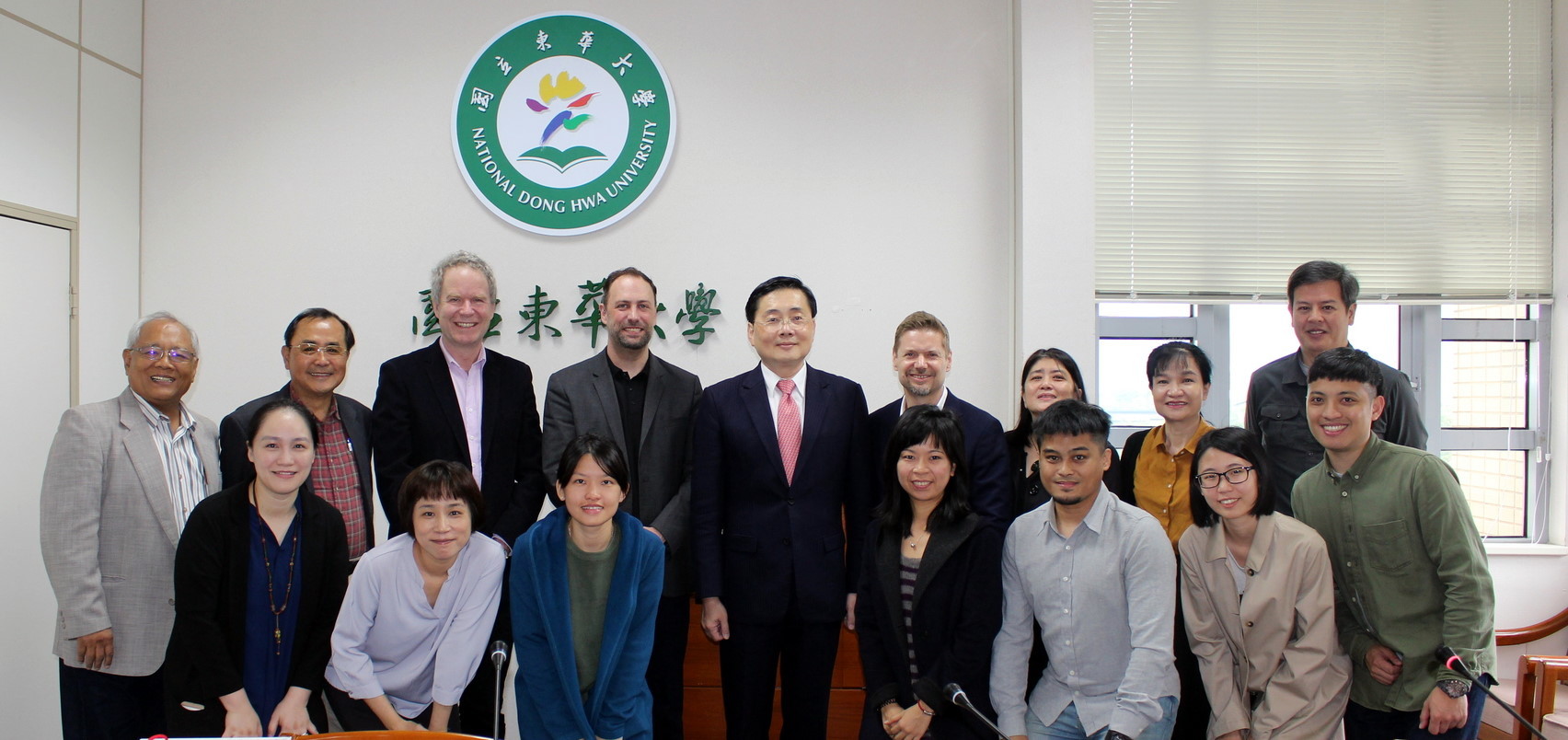
Group photo took from a courtesy call on the NDHU President Han-Chieh Chao by the Indigenous Transitional Justice Committee